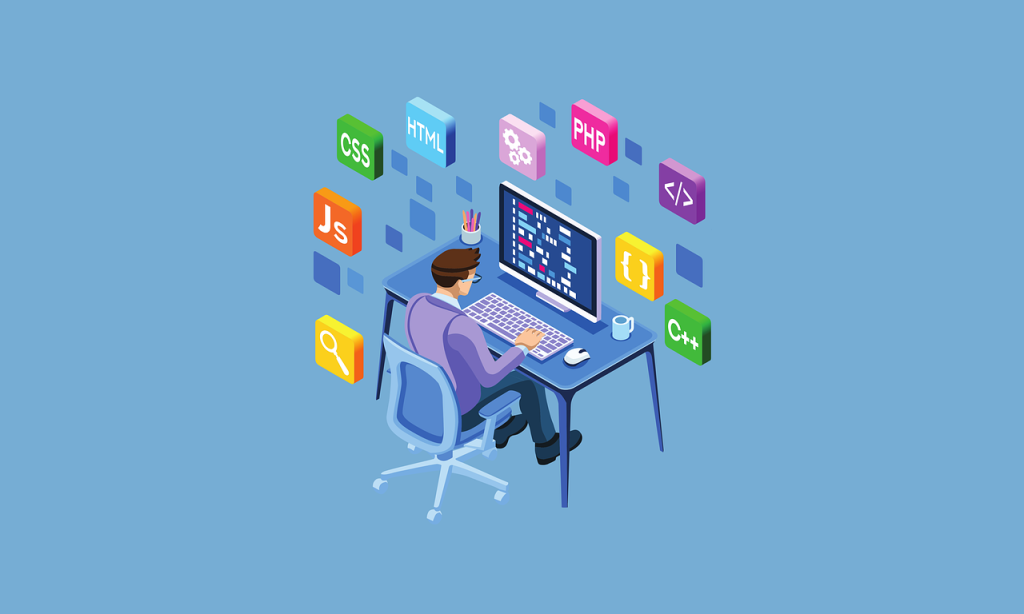 Pixabay
Pixabay Artificial intelligence is changing industries around the world, both digital and physical. A recent study by McKinsey & Company suggests that by 2080, as much as 100% of working hours in the U.S. could be automated. In this document, we will look at how AI is helping the software industry cut down on development time and costs for software projects.
 Source: McKinsey & Company
Source: McKinsey & CompanyHow Can AI Reduce Software Development Time and Cost
Right now, AI is helping companies reduce operational costs by as much as 30% and automate up to 45% of repetitive tasks. By handling routine tasks, analyzing large datasets, and making smart decisions, AI allows developers to concentrate on more valuable work, like innovation and solving strategic problems.
Let’s take a closer look at how AI is changing each stage of the software development lifecycle:
Requirements Gathering and Analysis:
AI-powered NLP tools like MonkeyLearn and IBM Watson Natural Language Understanding can analyze user feedback, documentation, and other written data to find important requirements and spot any unclear areas. This helps create clearer and more complete requirement specifications.
AI can also check the sentiment in user feedback and reviews to see what users like and dislike. This information is valuable for prioritizing features and improving the overall user experience.
Design and Prototyping:
Generative design tools, like Autodesk Dreamcatcher, use AI to create multiple design options based on specific goals and limits. This speeds up the design process by automating the initial stages. Instead of spending too much time on manual revisions, designers can focus on improving the best ideas that AI generates.
In user experience (UX) design, AI can analyze user behavior data to discover patterns and preferences. This helps designers create interfaces that are easy to use and feel natural. By anticipating what users want, AI shortens the UX design cycle, reduces the need for extensive A/B testing, and minimizes expensive redesigns. Overall, this approach saves both time and money.
Development:
Automated code generation tools like GitHub Copilot and Tabnine can create code snippets or entire functions based on simple prompts or the existing code. This helps developers speed up their initial coding tasks and spend less time on repetitive work.
Intelligent code completion features in IDEs like Visual Studio Code and IntelliJ IDEA suggest relevant code as a developer type. This speeds up coding by reducing the number of keystrokes and common mistakes, which boosts productivity and cuts down on debugging time.
AI also demonstrates strong capabilities in the field of test automation. Tools like Selenium and Appium use AI to automatically generate and test cases. This improves test coverage and helps teams find issues early in the development cycle, saving time and money compared to manual testing.
AI-powered CI/CD pipelines automate the build, test, and deployment phases, ensuring faster and more consistent releases. By simplifying these important processes, AI reduces the workload for development and operations teams. This leads to quicker delivery times, higher-quality software, and lower project costs.
Testing:
AI is making software testing faster, easier, and more affordable. With test case generation, AI can automatically create test cases based on the project’s needs and the code it covers. This helps developers catch issues early without spending hours writing tests.
Test automation tools then run these test cases automatically. This saves time and provides quick feedback on how the software performs. Developers can focus on more complex tasks, knowing that important functions are being tested.
Predictive analytics looks at past data to identify where problems might occur. This allows teams to focus their testing on high-risk areas, helping them avoid time-consuming debugging. By streamlining these testing processes, AI helps teams build and release quality software faster and with fewer resources.
Deployment:
AI is changing how software teams handle deployment and performance monitoring through automated deployment and intelligent performance monitoring.
AI services like Ansible and Puppet use AI to automate the entire deployment process. They manage everything from setting up infrastructure to deploying applications. This automation reduces manual errors, speeds up deployment, and ensures consistency across different environments.
For performance monitoring, AI-powered tools like New Relic and Dynatrace provide real-time insights into how applications perform. They help teams spot and fix issues before they affect users. These tools track important metrics, such as response time, error rates, and resource use.
They also have features to detect unusual patterns and problems, along with root cause analysis to find the source of any performance issues. This means teams can respond quickly and keep applications running smoothly.
Issue Tracking and Maintenance:
AI is also changing how we manage issue tracking and maintenance, making software development faster and cheaper. Tools like Jira and GitHub Issues are excellent examples of AI-powered issue tracking.
They automatically categorize and prioritize issues based on how serious they are and their impact. This helps teams focus on the most critical problems first and use their resources wisely.
AI also allows for easier searches for specific issues using simple language, saving time and improving accuracy. Plus, it can suggest possible solutions or relevant articles, helping developers resolve problems more quickly.
On the maintenance side, AI tools look at past data to predict when system failures might happen. This proactive approach lets teams schedule maintenance before issues arise, reducing downtime and keeping systems running smoothly. By targeting the most at-risk components, teams can allocate their resources better and improve overall system reliability.
Final Words
AI development is changing how software development works by making processes smoother and cutting costs at every stage. It helps teams automate tasks like code generation and testing, while also offering valuable insights from data analysis. This makes development faster and improves software quality. Organizations can even create custom AI software development solutions tailored to their needs. By adopting AI, businesses can open up new opportunities and gain a competitive edge in today’s digital world.

 1 month ago
27
1 month ago
27







 English (US) ·
English (US) ·